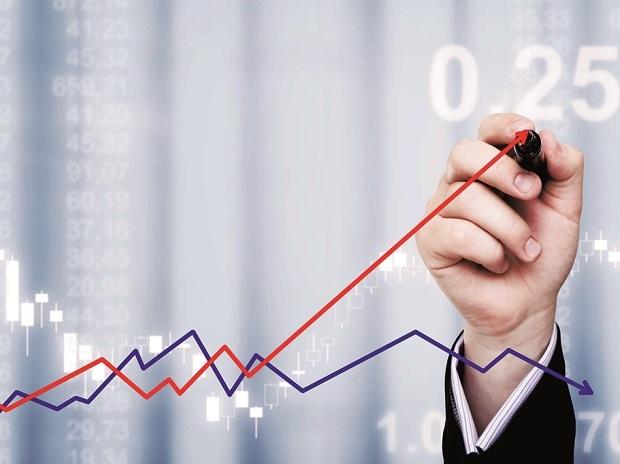An Economist and Dean of the School of Business at the University of Cape Coast, Prof. John Gatsi is confident of a more buoyant GDP growth for 2021.
Ghana’s economy suffered its first recession in 36 years in 2020 as the economy contracted on two consecutive quarters.
The economy contracted by 3.6 percent in the second quarter of 2020 and 1.1 percent in the third quarter, with year end GDP projected to be around 0.9 percent which will be one of the lowest GDP growths of the country in recent times.
With the easing of the restrictions which were imposed on the economy as a result of the COVID 19 pandemic, Prof Gatsi is optimistic about a more buoyant economic growth this year.
He indicated that, although there is high volatility in growth expectations, a positive GDP growth rate for the country is assured.
He made these remarks in reaction to the widely variant 2021 growth forecasts recently announced by the World Bank (1.4%), Cordros Capital (4.2%), and Moody’s Ratings (4.0%). He asserted that these forecasts are unstable since the indicators considered by these forecasters are highly volatile.
He pointed out that: “It all depends on the orientation of those who are giving the projection. Some are conservative in their projection, some are not conservative in their projection. Some are using forward-looking data, some are using historical data. So all those things bring about the variants, but in all their forecasts, what is key is that they are all expecting positive growth environment.”
Speaking in an interview with The Vaultz News, he intimated that Ghana is a small open economy, hence Ghana’s growth momentum is likely to be affected by happenings within its major trading partners; virus containment measures that will be adopted— whether those containment measures allow space for economic activities, trade and investment to occur.
“…We are a small open economy that also depends on what happens in other countries, especially, our major trading partners like China, the UK, or Europe in general and North America.
“So, therefore, our growth momentum will be dictated one way or the other by what happens in those countries and how they contain the virus, and more especially how that containment allows for economic activities, trade, and investment to take place. And that will also influence economic activities in Ghana and for that matter the growth momentum.”
He however noted that, the growth momentum may be affected if Ghana goes through another lockdown.
“…In Ghana, we have gone past the issue of restriction, lockdown, etc. Some other countries in the world are still going through lockdown, and lockdown comes with a sharply negative impact on economic activities. We are not in lockdown for a very long time therefore economic activities have actually begun.
“…Even because schools have reopened— secondary schools, basic schools, tertiary institutions have reopened, that is an economy on its own. So, that economy is coming back and it will contribute to the growth of the economy in general. So, unless we go through a severe lockdown, the growth momentum will remain positive because economic activities are beginning to come out.”

Government reforms to drive growth
To keep this growth momentum positive, he also indicated that it depends on the ability of the government to provide effective support schemes for businesses to thrive well.
He observed that, considering the main stream businesses, some are still struggling and may need support beyond what happened in 2020, which was largely driven by political expediencies.
Furthermore, he suggested that a proper mechanism should be used to track those that really need suppor in order to help them begin engaging in an effective and expanded economic activity. These are the things that will sell out the growth picture for the country, he highlights.
Going forward, the government should show innovation in how it will grant these supports to businesses, he argued.
“I think we have a great opportunity where the parliament of Ghana came together and approved a certain amount of money from the stabilization fund, etc. As to whether those monies were disbursed in an efficient and productive manner, they remain questions that have not been answered.
“So, the government should show innovation by demonstrating how we are going to get extra money to distribute to people who actually need it. Not people who are having political party cards, not people who are just affiliated to political parties, but people who are engaged in business and we are not looking at colour— party colour before we determine whether this business needs support or not. That is what we need now and that is the innovation that the government will have to demonstrate.”

Monetary Policy Expectations
According to Prof. Gatsi, the Central Bank sacrificed monetary policy in 2020 and did not consider economic indicators, just so that it will reduce the impact of the pandemic on businesses and ensure that funds were available for businesses to operate— most notably the reduction of interest rates.
He further stressed that, now that the restrictions have been removed and businesses have returned to work, hence, in dealing with the monetary policy it must be based on the traditional indicators.
“Because, if you go to cut down the monetary policy rate without adherence to the development of indicators within the macro space and external development, we may actually find ourselves in trouble.
“So, I am not expecting that we are going to reduce the policy rate, because inflation has started going up, and the exchange rate is not as stable as we expect. If you look at our fiscal indicators they are also very uncomfortable.
“So, when you look at all those things, I believe the best thing to do is to maintain the policy rate. If we are going to reduce the policy rate, then it means that it is not driven by the indicators.”
Howver, the Central Bank’s monetary policy committee meeting is slated to take place from January 26, 2021 – January 29, 2021.
READ ALSO: AfCFTA growth impact is long-term; won’t reflect in 2021 GDP growth— Prof. Gatsi



















